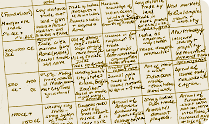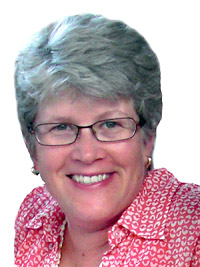Do Dates Matter?
Chronological Reasoning and Critical Thinking in World History
Wednesday, April 6, 2011 | 7:00 p.m.–8:30 p.m. (EST)

Leader

Lakeside School History Department Head
Seattle, WA
About the Seminar
In World History we struggle constantly with the balance between the big picture concepts and the illustrative detail that makes history engaging. One of the AP historical thinking skills focuses on applying chronological reasoning skills to world history. This includes not only causation and periodization, but also thinking about patterns of change and continuity over time.
This seminar will seek to help teachers pace out the year, using a variety of periodization models and timelines and to consider what level of detail students need to know. Content examples will be used in this workshop from both African and Chinese history, as well as from general world history scholarship. Participants will have the opportunity to discuss different pedagogical approaches including advice on writing about time.
Enter Moodle Forum
Assigned Readings
Big Picture Questions on the Readings (PDF)- Chris Peek and Angela Wainwright, “Time Management and Student Ownership — How to Get Through Your Curriculum in the Time Allotted” Roupp, ed. Teaching World History 2nd ed. (2010) (PDF)
- Africa Timelines
- Peter Perdue, “Eurasia in World History: Reflections on Time and Space”, World History Connected
- Chinese Cultural Studies: A Brief Chinese Chronology | Chinese Dynasty Song
- Change Over Time Teaching Strategies
- From Global to Local, and Back Again, Sharon Cohen
- Strategies for the Change-Over-Time Question, Peter Stearns
- The Challenging Concept of Change Over Time, Sharon Cohen
- Must-Know Dates (PDF)
- “Time” Activities from the Mundane to the Sophisticated (PDF)
- Periodization Argumentation Brief (PDF)
- Periodization AP Lesson (PDF)
Suggested Secondary Readings
- Jerry Bentley and Patrick Manning, “The Problem of Interactions in World History”, American Historical Review June 1996, pp. 749–782
Presentation
PowerPoint, 2.1 MBOnline Evaluation
Seminar Recording
Download Recording (You will need to install the WebEx ARF player, available at download, to play back the recording.)
